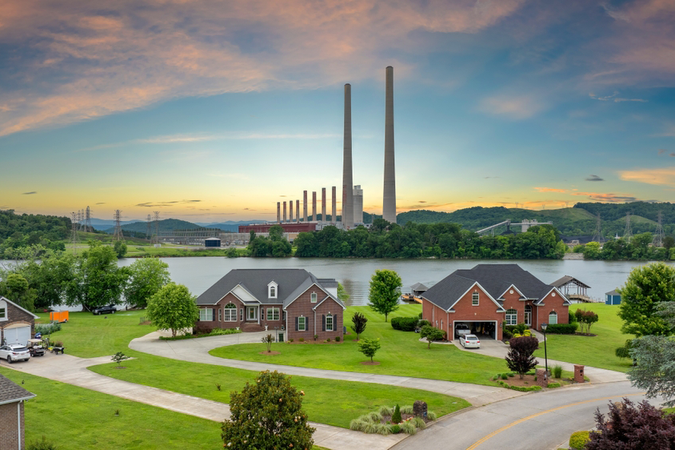Resilient Energy Economies Initiative Announces New Request for Research Proposals for Economic Resilience and Diversification in US Fossil Fuel–Dependent Communities
The collaboration is announcing a request for proposals for research on strategies to help US communities whose economies will face challenges due to the transition from fossil fuels to clean energy.
The Resilient Energy Economies (REE) initiative, a collaborative project of the Center on Global Energy Policy (CGEP) at Columbia University SIPA, Resources for the Future (RFF), the University of Notre Dame, and Montana State University, today announced a new request for proposals (RFP) for research on strategies to help US communities whose economies will face challenges due to the transition from fossil fuels to clean energy. The RFP is funded as part of a $1 million grant from the Alfred P. Sloan Foundation.
The RFP is available here.
The Sloan Foundation grant—which will fund research produced in response to the RFP, as well as convenings of policymakers and scholars—will facilitate the latest step in REE’s efforts to build a community of researchers across the country who can identify policies that help fossil fuel–dependent communities maintain strong economies.
RFP responses should involve research that helps public and private actors in the United States on topics including:
- Durable transition planning strategies for local governments
- Fiscal stability while anticipating transition risks to public finances
- The potential for new engines of economic stability
- Infrastructure rightsizing as communities adjust to changing growth trajectories
Applicants are asked to submit a pre-proposal by October 31, 2025 on the REE website. A select number of applicants will be invited to submit a full proposal. Grants will range from roughly $25,000 to $100,000 per project, and scholars are encouraged to partner with policymakers and community members to ensure research is aligned with local priorities. Applicants with questions can contact REE project manager Christina Cilento ([email protected]).
The United States is the world’s largest producer of oil and gas and the fourth-largest producer of coal. Communities that rely economically on fossil fuels and fossil fuel infrastructure have an urgent need for effective, applicable strategies to build economic resilience as the world transitions away from fossil fuels. Aging infrastructure, volatility, and uncertain pathways for infrastructure reuse all pose major challenges that are shared by many communities. However, individual communities face these challenges in different contexts and with different suitabilities for alternative economic pathways.
The REE initiative’s goal is to provide US policymakers with the research, information, and new thinking they need to facilitate resilient local economies in communities moving away from economic dependence on fossil fuel infrastructure.
More information on REE is available here.

“The Alfred P. Sloan Foundation’s Energy and Environment program supports high-quality, impartial scholarship that aims to increase our understanding of the costs, benefits, and tradeoffs involved in the US transition to a low-carbon economy,” said Evan S. Michelson, program director at the Sloan Foundation. “This new RFP will generate valuable insights that will help communities make informed decisions about their energy future.”
“There’s no equitable energy transition if the decline in fossil fuels causes local economic hardships across the country,” said Noah Kaufman, CGEP senior research scholar. “This new RFP will help to foster innovative public policies that ensure communities do not get left behind.”
“Many fossil fuel–dependent communities are facing substantial economic headwinds. As the world shifts away from fossil fuels, it’s crucial that we develop strategies to help those communities navigate that transition,” said Daniel Raimi, fellow at Resources for the Future.
“We know that addressing climate and social priorities means major changes for communities that currently rely financially on fossil fuels, and we hope research on transition strategies can promote a stable, managed transition to an energy system that protects and serves everyone,” said Emily Grubert, associate professor of sustainable energy policy at the University of Notre Dame. “We hope the Resilient Energy Economies Initiative’s new funding enables new, engaged research to advance this mission.”
“Federal, state, and local officials across the country could face tough decisions as coal, oil, and gas communities lose their traditional sources of economic activity and tax revenue,” said Julia Haggerty, professor of geography at Montana State University. “This grant from the Sloan Foundation will help the Resilient Energy Economies Initiative and our network of researchers develop solutions to the problems communities face as they work to keep employment high and living standards up.”
Resources for the Future (RFF) is an independent, nonprofit research institution in Washington, DC. Its mission is to improve environmental, energy, and natural resource decisions through impartial economic research and policy engagement. RFF is committed to being the most widely trusted source of research insights and policy solutions leading to a healthy environment and a thriving economy.
Unless otherwise stated, the views expressed here are those of the individual authors and may differ from those of other RFF experts, its officers, or its directors. RFF does not take positions on specific legislative proposals.
For more information, please see our media resources page or contact Media Relations and Communications Manager Annie Tastet.





